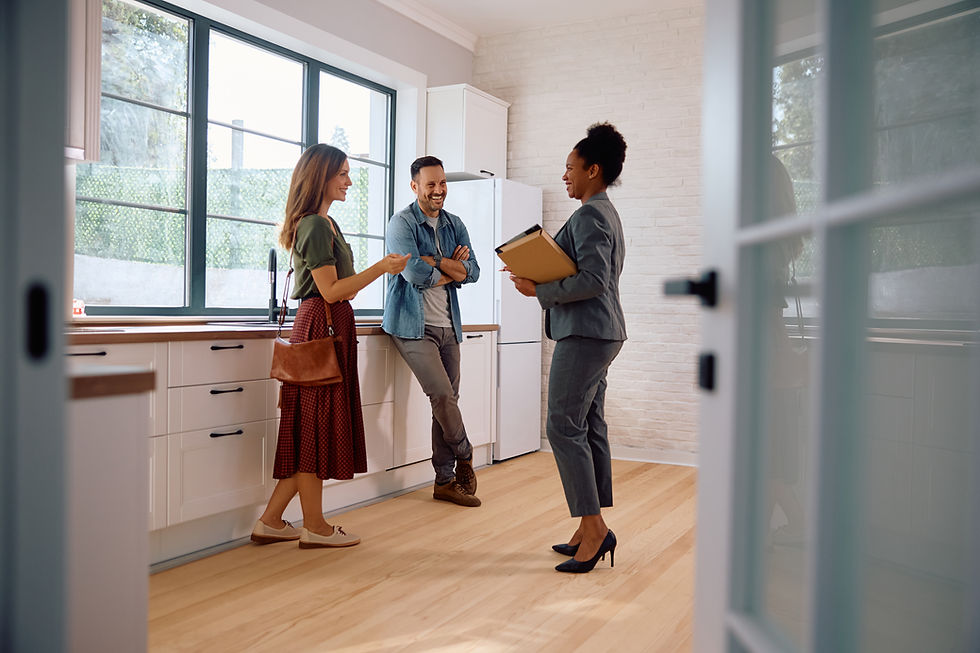Community Feedback in Real Estate Development: How Portland Projects Are Thriving By Listening
- tylergkoski
- Oct 13, 2025
- 4 min read
Why Community Feedback Matters
In Portland’s evolving real estate industry, development isn’t just about buildings—it’s about people. Especially in neighborhoods rooted in the Black community and broader BIPOC communities, meaningful community feedback can shape housing solutions that protect identity, expand homeownership opportunities, and create sustainable paths for wealth creation.
At Grand Union Real Estate, we’ve seen how listening first creates stronger results. From mixed-use developments to catalytic projects, incorporating resident voices drives both financial returns and social equity goals. This approach aligns with the values we outlined in Real Estate for the Greater Good, where impact investment reshapes neighborhoods without displacing the people who make them vibrant.
Listening as a Tool for Equity
Protecting Legacy Neighborhoods
For many underserved communities, Portland’s development boom has felt like an erasure. But equity-centered development companies that prioritize community feedback are turning the tide. Listening to residents uncovers priorities that go beyond square footage: preserving color, strengthening cultural hubs, and protecting long-term homeownership opportunities.
As highlighted in Legacy Neighborhoods and Cultural Continuity, successful projects don’t impose—they co-create. This model ensures neighborhoods remain rooted in social justice and equitable opportunities.
How Feedback Shapes Development Projects
1. Affordable Homes and Access
Feedback from emerging leaders and family services organizations often emphasizes the need for affordable homes that are also accessible. Programs connected to Proud Ground or the Portland Housing Center show how equity-focused work can expand homeownership opportunities while protecting underserved communities.
We examined this approach in Community-Focused Home Buying in Portland, where housing models combine affordability with long-term sustainability.
2. Mixed-Use Developments That Reflect Community Needs
Mixed-use developments are a hallmark of modern urban development, but their success depends on feedback loops. Residents want more than storefronts—they want services, cultural spaces, and resources that reflect their identities.
By involving urban designers, developers ensure district systems support both housing and family services, creating catalytic projects that deliver value across the entire built environment.
This ethos mirrors our findings in Equity-First Financing, where financing strategies are tied to sustainable development and equity-centered design.
3. Sustainable Development and Environmental Goals
Portland is a national leader in green building policy, environmental sustainability, and land conservation. But top-down initiatives can miss key insights from residents. By incorporating feedback, developers are adopting innovative projects like sustainable construction and green building measures that align with community climate priorities.
Our article on Climate-Resilient Investment Properties explains how sustainability policies like energy trust rebates and LEED certifications tie directly into neighborhood resilience.
Feedback in Action: Case Studies
The Role of Founders and Emerging Small Businesses
Portland’s real-estate development landscape is being reshaped by founders, women-owned businesses, and emerging small businesses who listen to community needs first. These leaders see wealth creation not only in profit margins but also in stronger neighborhoods.
Examples include innovative projects that incorporate affordable childcare into mixed-use developments, or housing solutions designed around the social equity goals of BIPOC communities.
Grist 50 Recognition
Some of Portland’s most effective voices have gained national recognition through programs like Grist 50, which celebrate emerging leaders committed to sustainability and justice. Their projects often integrate fields such as city planning, environmental services, and real estate investment to build long-term impact.
Community Feedback as City Planning
City planning in Portland has been criticized for failing to protect legacy residents. But by embedding structured feedback processes into every stage—from zoning updates to design reviews—developers can build with integrity.
This collaborative model reflects what we call responsible urban development. It demands that real-estate development companies align with equity-focused work and prioritize developing projects that advance both housing solutions and environmental sustainability.
For a deeper dive into how this strategy works, see our guide on Responsible Real Estate Investment.
The Future: Equity by Design
Community feedback isn’t a box to check—it’s a compass. By listening, developers can:
Expand affordable homes while protecting historic communities.
Drive wealth creation in ways that support BIPOC communities.
Shape sustainable development that serves both people and the planet.
Create equitable opportunities through mixed-use developments and housing solutions.
The result is more resilient neighborhoods and a healthier real estate industry—one where access and inclusion are as central as profitability.
Final Thought: Listening as Leadership
The future of Portland’s real estate lies not in speculation, but in stewardship. Developers who prioritize community feedback will deliver projects that serve the Black community, strengthen BIPOC communities, and honor the city’s deep history of resilience.
At Grand Union Real Estate, we stand with founders, urban designers, and real estate investors who see listening as the first step in building. Together, we can ensure Portland’s growth reflects its people, culture, and values.
For more, explore our take on Legacy Neighborhoods and Housing Equity and see how community roots can shape the future of housing in the city.




Comments